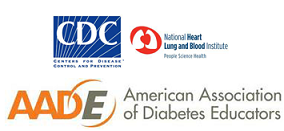Generalist vs. Specialist Qualifications
| < Back | Next > |
|---|
 The following are concerns regarding the general or specific nature of CHW training:
The following are concerns regarding the general or specific nature of CHW training:
- How transferable are core skills between specific jobs?
- Should CHWs be certified in specific areas (heart disease, diabetes, behavioral health)?
- Various parties are interested in specialist standards (e.g., CDC, NHLBI, AADE)
- Are national- or state-level standards needed? Or both?
View Transcript
[SPEAKER]
Opinions vary on the extent of training in core skills that is required to be a fully qualified CHW. Because most actual CHW job descriptions do not include the full range of roles and functions a CHWs may fulfill, employers may limit training to the skills directly associated with the job at hand.
CHW training programs often require students to apply each of their lessons in field practice, whether through exercises in each course, an internship or practicum, or some combination of these. Thus, it is possible for a CHW to begin work before formal training is completed.
In July 2010, the U.S. Department of Labor approved the CHW as an “apprenticeable trade.” This route may be especially attractive to employers since the CHW can begin work as a trainee almost immediately, and can develop further skills while working.
Historically, employers have almost always provided supplemental job-specific training, even for experienced CHWs. We have not seen any systematic research on the degree to which core or generalist skills developed in one job are transferable to another job.
Anecdotally, CHWs seem to want training in as many substantive areas as possible so they can better assist the families they serve. Several of the community college programs available for CHWs offer specialty tracks, such as pediatrics, gerontology, behavioral health, and oral health. Outside the states where these programs are located, however, these courses are not accepted for certification of competence in these particular health areas. A transferable specialty certificate in diabetes, for example, could be an advantage to both CHWs and employers looking to hire CHWs for a particular program.
A number of organizations have expressed interest in standardizing content in specific areas. CDC has produced CHW curriculum materials on the prevention and management of diabetes, heart disease and stroke. The National Heart, Lung, and Blood Institute has invested extensively in curriculum development for CHWs in heart health and is investigating interest in national skills certification for CHWs. The American Association of Diabetes Educators has expressed interest in creating a national specialist certification for CHWs focusing on diabetes.
In a previous session, we noted possible concerns within the CHW field about moving too quickly toward national standards for CHWs. However, a system in which core skills standards for CHWs are set at the state level might still be compatible with the establishment of specialist skill qualifications and curricula at the national level.
- Page last reviewed: January 28, 2016
- Page last updated: January 28, 2016
- Content source:



 ShareCompartir
ShareCompartir